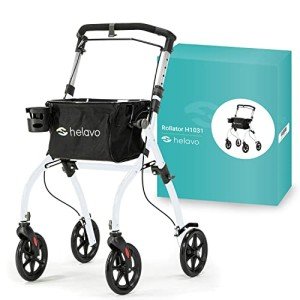Why Do So Many People Want To Know About Bariatric Walker?
페이지 정보

본문
Understanding Bariatric Walkers: A Comprehensive Guide
As the population ages and the occurrence of weight problems boosts, the need for adaptive mobility aids, such as bariatric walkers, has actually risen significantly. These specialized walkers are created to support heavier people, offering security, stability, and mobility. In this article, we will explore the various aspects of bariatric walkers, including their benefits, features, types, and considerations for use, guaranteeing you have a detailed understanding of this vital mobility aid.
What is a Bariatric Walker?
A bariatric walker is a kind of mobility aid particularly developed to support people who are obese or overweight. Unlike regular walkers, bariatric walkers are constructed with enhanced materials and features to offer increased resilience, stability, and weight-bearing capability. They are a necessary tool to boost mobility, self-reliance, and safety for people undertaking rehabilitation or those with chronic health conditions.

Secret Features of Bariatric Walkers
Bariatric walkers come geared up with numerous features tailored to the needs of bigger individuals. Here are a few of the essential features one can anticipate:
| Feature | Description |
|---|---|
| Weight Capacity | Generally supports between 300 to 600 pounds |
| Frame Construction | Made from robust materials like aluminum or steel |
| Adjustable Height | Height can be changed to accommodate different users |
| Wide Base | Broader base for enhanced stability and balance |
| Hand Grips | Padded, ergonomic grips for convenience |
| Wheels | Can have 2 or four wheels for mobility alternatives |
| Devices | May include a seat, storage basket, or tray |
Kinds Of Bariatric Walkers
When thinking about a bariatric walker, it's important to understand the various types readily available:
Two-Wheel Bariatric Walker
- Features a lightweight frame with 2 front wheels.
- Ideal for users needing very little assistance while walking.
Four-Wheel Bariatric Walker
- Offers more mobility and often consists of a seat.
- Recommended for users requiring more support and the option to rest.
Rolling Walker
- Similar to Four-wheel Walker walkers but normally integrates a braking system.
- Supplies simpler navigation for larger individuals.
Dual-Function Walkers
- Integrates features of traditional walkers and rollators.
- Suitable for users looking for adaptability in mobility choices.
Walker with Seat
- Enables users to rest throughout walks, an important feature for those with minimal endurance.
Advantages of Using Bariatric Walkers
The advantages of using a bariatric walker extend beyond mobility. Some of the most considerable advantages include:
- Increased Safety: With tough construction and enhanced stability, bariatric walkers minimize the risk of falls and injuries.
- Boosted Mobility: Users can regain independence, moving about their homes and neighborhoods more easily.
- Improved Confidence: With the ability to move safely, people frequently experience a boost in self-confidence and confidence.
- Aiding Rehabilitation: Essential for physical treatment and rehab, facilitating movement and recovery.
- Weight Distribution: Designed to support a bigger weight distribution effectively, they promote much better posture and balance.
Considerations When Choosing a Bariatric Walker
Picking the best bariatric Stable Walker is crucial for guaranteeing safety and convenience. Here are some important aspects to consider:
Weight Capacity: Always check the maximum weight limitation to ensure the Shopping Walker can accommodate the user's weight securely.
Height Adjustability: Select a walker with adjustable heights to deal with the user's stature.
Foldability: Consider a foldable walker for easy transport and storage.
Wheel Size and Type: Depending on the walking surface area, larger wheels might assist in smoother movement over bumps and transitions.
Storage Options: Additional features like baskets or trays can be crucial for carrying individual products.
FAQs about Bariatric Walkers
Q: How do I know if a bariatric Premium Rollator Walker is ideal for me?A: Consult a health care professional or physical therapist, who can assess your requirements and recommend the most appropriate mobility aid. Q: Can bariatric walkers be used outdoors?A: Yes, numerous bariatric walkers are created for indoor and outdoor usage, particularly those with larger wheels. Q: How much do bariatric walkers generally cost?A: Prices can differ widely, normally ranging from ₤ 100 to ₤
400, depending on the features and brand. Q: Is assembly needed
for bariatric walkers?A: Some models come pre-assembled, while others may need basic assembly. Constantly check the item description. Q: How do I preserve my bariatric Medical-Grade Walker?A: Regularly inspect
the walker for loose parts, ensure wheels and brakes function correctly, and tidy it routinely to keep it in optimal
condition. Bariatric walkers play a critical function in improving mobility and promoting independence for heavier people. With various designs, features, and factors to consider, it is necessary to find the
ideal walker that fits the user's particular needs. By understanding the information detailed in this guide, users and caretakers can make educated options to help with more secure and more comfortable mobility. As individuals look for the very best options for mobility difficulties, the bariatric walker stays a reliable and important choice for promoting an active and independent way of life, paving the
way for boosted quality of life.
- 이전글Play m98 Casino site Online in Thailand 25.10.04
- 다음글Does Chewing Gum Break Your Fast? 25.10.04
댓글목록
등록된 댓글이 없습니다.

